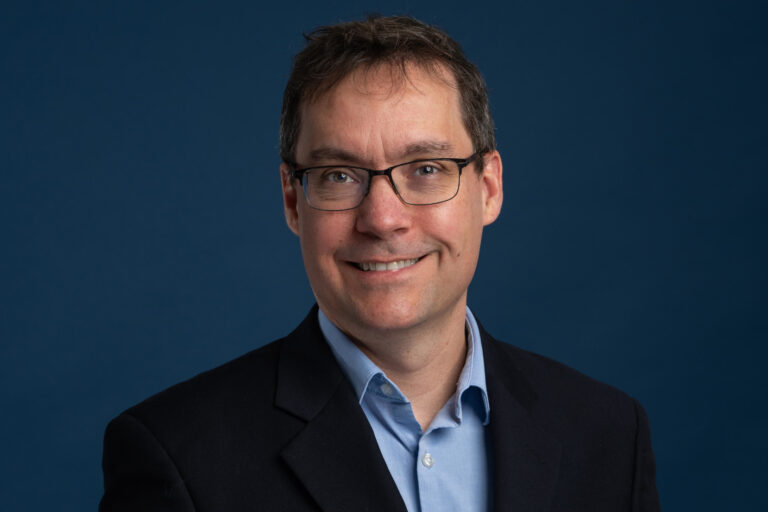
The 2022-23 Explorer Challenge focused on projects that incorporated inclusive practices. Four innovative projects were selected to receive up to $25,000 in seed money to make an impact and advance Beyond Boundaries, Marquette’s strategic plan.
The Explorer Challenge invites students, faculty and staff to submit proposals for the 2023-24 Explorer Challenge, which begins on Wednesday, Oct. 11, at 3:30 p.m. with a celebration and information session. The kickoff celebration at the 707 Hub will feature presentations from this year’s four awardees, as well as information on how Marquette community members can propose their own projects for the upcoming competition. The competition will continue to focus on incorporating inclusive practices.
Register for the kickoff event online.
Training Students to Deliver a Student Wellness Program
Team leader: Dr. Alyson Gerdes, professor of psychology in the Klingler College of Arts and Sciences
Over the past decade, professors and university administrators have witnessed a mental health crisis unfold on college campuses. This crisis was further exacerbated by the COVID-19 pandemic, which forced college students to rapidly adjust to a qualitatively different way of life characterized by distance learning, social isolation, and perpetual vigilance.
In response to current student needs, Gerdes and Dr. Nakia Gordon, associate professor of psychology, developed a six-week wellness program for Marquette undergraduate and graduate students. Each week of the program, a new wellness topic is introduced and practiced. Topics include 1) relaxation, 2) yoga, 3) gratitude and self-compassion, 4) emotion regulation, 5) goal setting and time management, and 6) nutrition and movement.
Initial outcomes from a pilot study (AY 21-22) suggest promising results with improvements in wellbeing and mental health outcomes in students who participated. A larger, follow-up study employing a wait list control design demonstrated similar improvements in wellbeing and mental health outcomes among students who participated in the group relative to those in the wait list control group (AY 22-23).
The primary aim of the proposed project is to transition the delivery of this evidence-based student wellness program to Marquette students who can continue to co-lead the wellness groups and train other students to do the same. The goal is to integrate the wellness program into existing student programming that would allow the program to be available to more students while also training student wellness leaders.
Restorative Practices Initiative at Marquette
Team leader: Dr. Louise Cainkar, professor of social and cultural sciences in the Klingler College of Arts and Sciences
This project focuses on supporting the institutional development, centering and strategic deployment of restorative practices at Marquette, drawing on existing university resources. Specifically, the team is proposing an innovative, multi-pronged initiative that will increase institutional capacity for promoting a culture of inclusion and restorative conflict resolution through the engagement, training and deployment of a diverse set of campus-wide stakeholders.
The first parts of the project focus on developing on-campus leaders (including faculty, staff and students) to serve as an advisory group for the initiative and on building their skills and capacities in restorative practices. Step two is the development of an interdisciplinary undergraduate minor in restorative practices with a community engaged component designed in consideration of best practices, student outcomes and available resources.
Following those, the team aims to offer an annual series of campus-wide trainings in restorative practices and to institutionalize a concrete, sustainable resource team that can be called upon to assist in restorative conflict resolution and climate improvement across campus. All of these steps will be taken in consultation with existing MU administrative structures. Finally, the team will develop short- and long-term institutional programming, including an internal conference and engagement with the larger Milwaukee community, that embeds restorative justice within campus life and provides resources for Milwaukee at large.
Measuring Student Development of Professional Formation Competencies
Team leader: Courtney Hanson, director of Career Services
Career readiness is the foundation for successful entry into the workforce. It provides a framework for students to reflect on learning and experiences, regardless of academic program, and identify key skills they have developed that are most desired by employers.
The National Association of Colleges and Employers (NACE) surveyed employers and identified the eight career readiness competencies ranked highest as indicators of career readiness. A cross-campus committee built upon the work of NACE to develop the Marquette University Professional Formation Competencies. Infusing Marquette’s guiding values into the NACE career readiness competencies, the committee provided structure to guide professional formation as a part of a distinctively Marquette education. This project aims to build on this work and measure career readiness, as defined by the Professional Formation Competencies, in order to grow awareness of career readiness on campus and improve the career readiness of all students.
Global Indigeneity and Land Struggle: Documentary Film for Sustainable Futures
Team leader: Dr. Tara Daly, associate professor of languages, literatures, and cultures in the Klingler College of Arts and Sciences
Global Indigeneity and Land Struggle: Documentary Film for Sustainable Futures will explore the land and water struggles of Indigenous groups around the world at a comparative scale through in-person programming on campus. Over two years, six documentary filmmakers will be invited to campus to engage with students, faculty, staff, community partners and the public. Each semester the programming will include a film screening followed by a roundtable discussion led by Marquette faculty, staff, students and/or community members.
The documentaries and round-table presentations will be incorporated into the curricula across colleges to ensure broad audience participation. They will also be scheduled at a reasonable pace with thoughtful and intentional programming for maximum event turnout.
The proceedings from these events will be published in an open-access, digital format on a shared website. The directors’ visits will include programming that incorporates partners like the Indian Community School (Franklin, Wisconsin), UW-Milwaukee and the MKE film festival. Local radio and news networks will be contacted to maximize publicity. Ultimately, the project will result in external grant applications, a special journal issue and a website.


